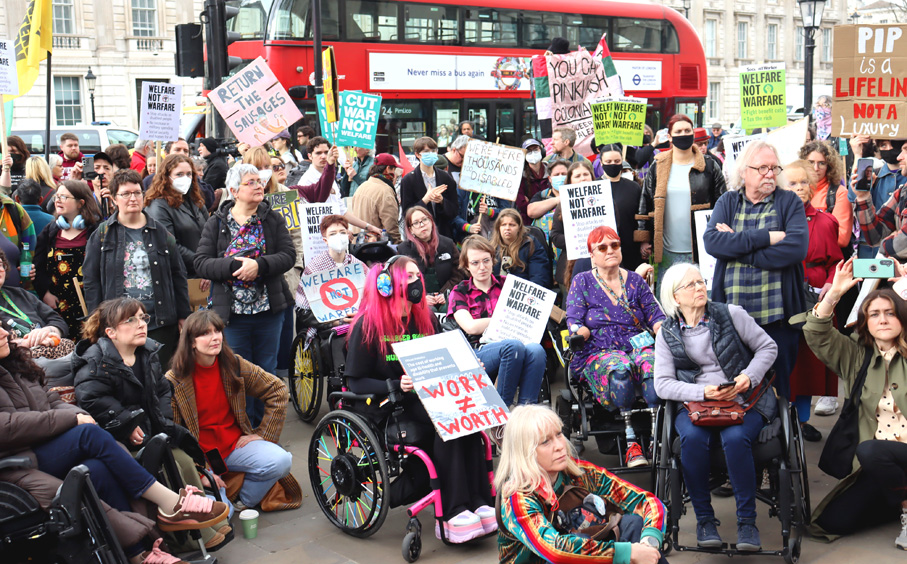
LABOUR Chancellor Rachel Reeves delivered a vicious £4.8bn cuts onslaught on the working class and poor in her Spring Statement yesterday.
According to the government’s own ‘impact assessment’, the measures will push an extra 250,000 workers into poverty, including 50,000 children.
Health-related Universal Credit (UC) will be halved from April 2026, and frozen until 2030, UC payments will only rise to £106 per week, instead of £107 in 2030, health related payments for existing claimants will be frozen until 2030, there will be a stricter eligibility test for personal independence payments (PIPs), incapacity benefits are to be frozen for existing claimants at £97 per week – those aged under 22 will no longer be able to claim the incapacity benefit top-up of UC.
She announced a cut in government departments by 15%, with 10,000 civil service jobs to go, including staff working in HR, policy advice, communications and office management
Reeves said that the Office for Budget Responsibility (OBR) had downgraded predicted growth for this year from 2% to 1%.
While making massive cuts at the expense of the poorest and most vulnerable, Reeves said defence spending, which had been due to rise by £2.9bn will increase by a further £2.2bn to £5.1bn, taking military expenditure to 2.36% of Gross Domestic Product (GDP) and to 2.5% by 2027.
She then went on to announce a huge militarisation of the UK economy.
She said: ‘Mr Speaker, a changing world presents challenges, but it also presents new opportunities, for new jobs and new contracts in our world class defence industrial centres, from Belfast to Deeside, from Plymouth to Rosyth.
‘The Prime Minister set out our government’s commitment to increase spending on defence to 2.5% of GDP from April 2027, the biggest sustained increase in defence spending since the end of the Cold War.
‘It is our ambition to spend 3% GDP on defence in the next parliament. That was the right decision in a more insecure world, putting an extra £6.4 billion into defence spending by 2027.
‘But we have to move quickly in this changing world and that starts with investment. So today I can confirm that I will provide an additional £2.2 billion to the Ministry of Defence in the next financial year, a further downpayment on our plans to deliver 2.5% of GDP by 2027.
‘This additional investment is not just about increasing our national security, but increasing our economic security too.
‘As defence spending rises, I want the whole country to feel its benefit, so I will now set out the immediate steps that we are taking to boost Britain’s defence industry and to make the UK a Defence Industrial Superpower.
‘We will spend 10% of the Ministry of Defence’s equipment budget on new novel technology, including drones and AI enabled technology, driving forward advanced manufacturing production in places like Glasgow, Derby and Newport and delivering new business opportunities for British tech firms and start-ups.
‘We will establish a protected budget of £400 million within the Ministry of Defence, a budget that will rise over time to UK defence innovations with a clear mandate to bring innovative technology to the front line at speed.
‘And we will reform our broken defence procurement system, making it quicker, more agile and more streamlined and giving small businesses across the UK better access to Ministry of Defence contracts.’